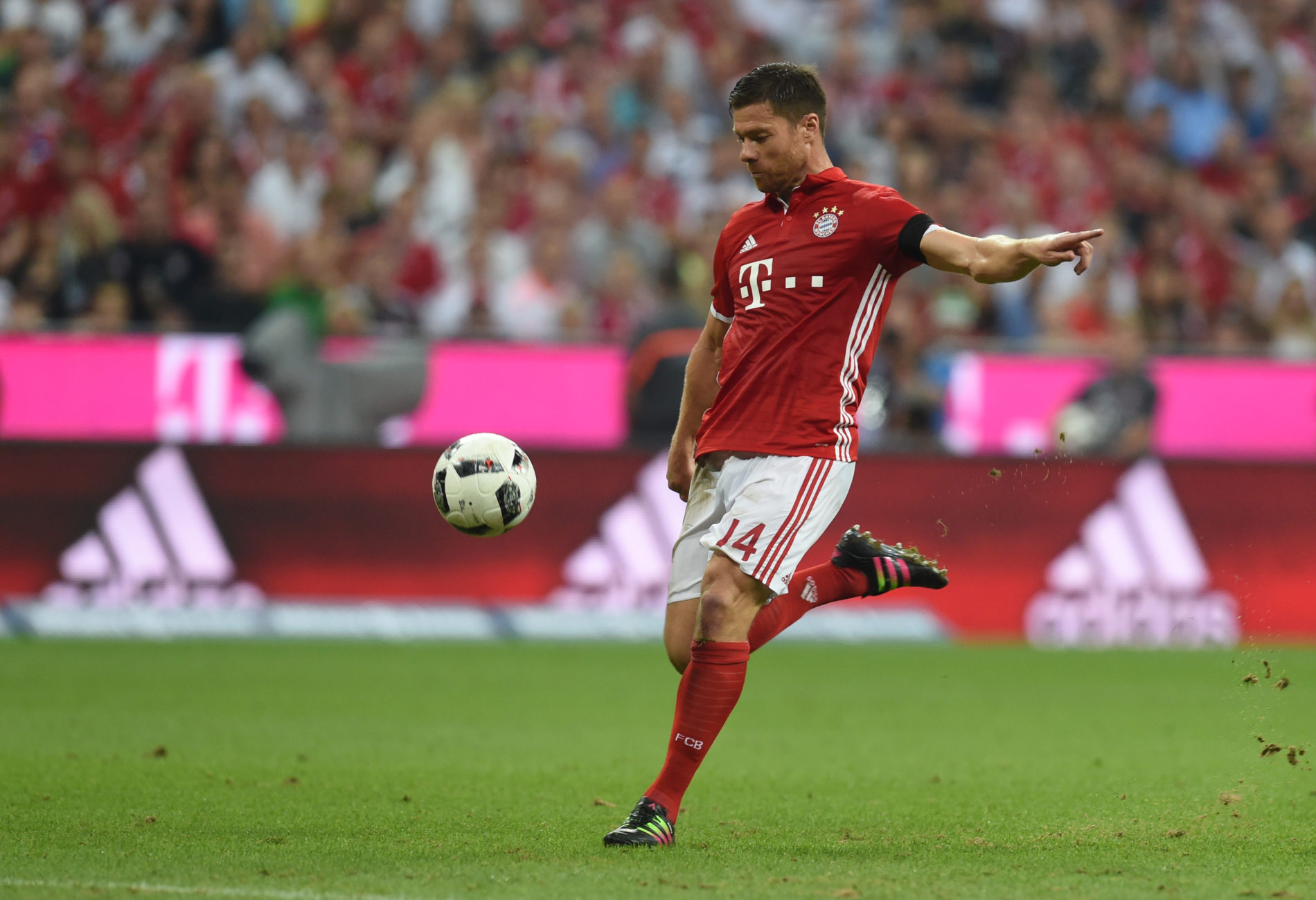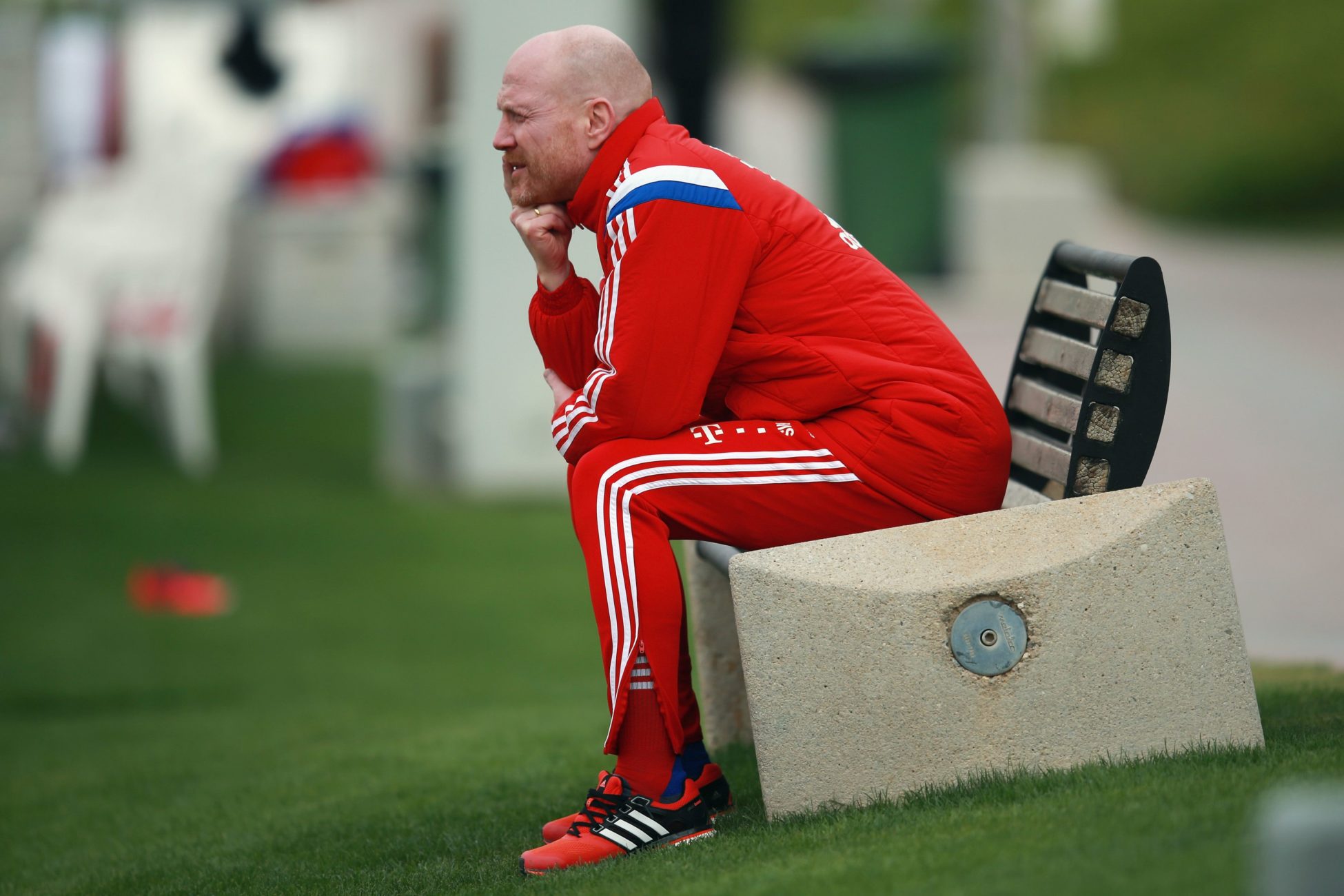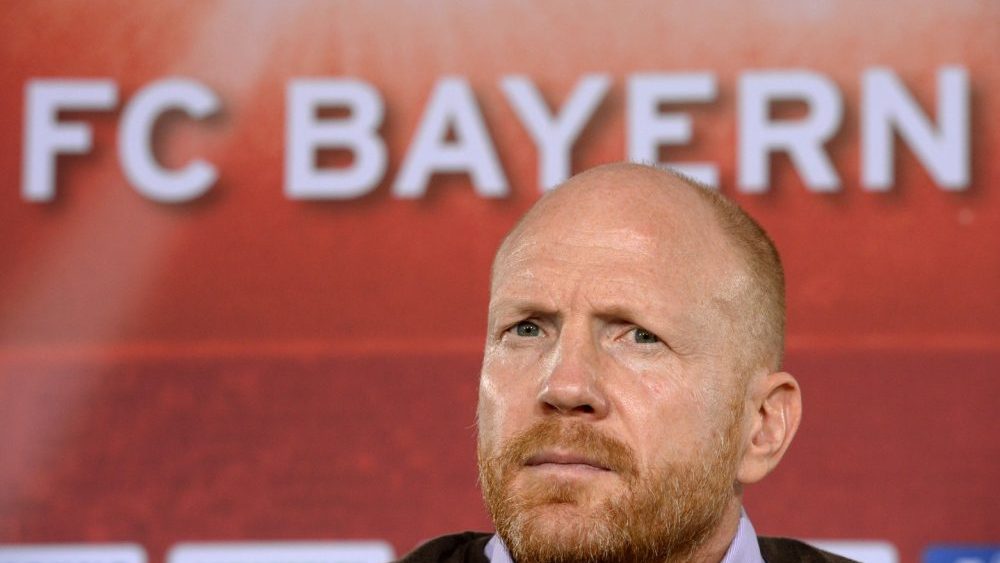The Alternative Awards 2016

(Photos: Coman, Sammer – Alexander Hassenstein/Bongarts/Getty Images;
Atletico – Adam Pretty/Getty Images;
Alonso – Christof Stache/AFP/Getty Images;
Rafinha, Müller, Alaba – Marc Mueller/Getty Images)
Goal of the year: Xabi Alonso against Werder Bremen
The new season has only just woken up; really, it’s still half-asleep. And suddenly: boom.

(Photo: CHRISTOF STACHE/AFP/Getty Images)
There were more important goals, and there were similarly spectacular goals. But throughout Bayern’s 2016, no other goal was this beautiful and perfectly created. First touch, focus, technique – nothing about this shot was lucky or accidental. This Xabi Alonso stunner should be part of every single football textbook, there’s simply no better way of executing a long-range shot.
Substitution of the year: Kingsley Coman againstJuventus
Bayern’s 4-2 win against Juventus this past March is one of those games that fans will remember for a long time. A terrible first half that made survival in the Champions League look highly unlikely. An unexpected comeback, driven by sheer willpower. And Kingsley Coman, the personified turning point.
The Frenchman – on loan from Juventus – had to wait until the 60th minute before he could step on the pitch, when he replaced Xabi Alonso and began the final all-out attack. At that point, the game stood at 0-2, although to be fair to the course of the game, the score should have been at 0-4. Nevertheless, Bayern needed just two lucky goals to make it into extra time.
Thomas Müller delivered the all-important goal with a 90th-minute header; assisted and initiated by Coman, who had been like a breath of fresh air on Bayern’s wing and was already involved in the first Bayern goal. Extra time then brought the cherry on top: first, Thiago scored the goal that put Bayern ahead, and shortly afterwards the then-19-year-old found a world-class finish within him to finally decide the game against his former club. His sprint across half the field, crowned by a phenomenal shot (with his left foot!) wasn’t just reminiscent of Arjen Robben, it was also his first careful knock on the door of world class. Let’s hope that he will return to that form next year, because a Kingsley Coman at that level can decide big games. He’s already managed to do it once, after all.
Game of the year: FC Bayern – Atletico Madrid
It was an evening in May, and once again, Bayern made their exit from the Champions League at the end of the semi-final, once again, Guardiola couldn’t get past the round of the last 4. But there haven’t been too many losses that have made Bayern fans feel as proud as this day, 4 May 2016.
The team had been proclaimed (almost) dead before the game, the 0-1 loss in the first round a seemingly insurmountable obstacle against this team, and even in the league, wins had suddenly become hard to come by. All the more surprising, and emotional, was this bouquet of impressive performances delivered by Bayern’s team. The first half in particular has to be one of the most dominant and simply best games in Bayern’s recent history, the half-time score of 1-0 more a bad joke than a representation of the course of the game. Atletico’s famed defense was so shaky it confused everyone who saw it.
The infamously spoiled, picky Bayern crowd recognised as one the team’s performance as an extraordinary one. And even though sports, in the end, is always about the result, the numbers just had to wait on that particular night – the team may have exited the competition, but they had just played an unbelievable game. Overwhelming even this spoiled-by-success audience with a team performance means it must have been a bloody fantastic game. Bayern against Atletico was nothing short of an incomplete master piece.
Karma of the year: Müller & Alaba
Thomas Müller and David Alaba have to be the most prominent and most surprising victims of a phase of complete lack of form. Both at the Euros during the summer and during the new season up till now, the two players, usually mainstays of the team, have been highly disappointing – at least compared to their previous performances.
Now, this could of course turn into a tactical or even mental analysis of the reasons behind this dip. But it won’t. Instead, all we’ll say about the topic is that this performance, of arguable quality, happened after the DFB Cup 2016.
You are currently viewing a placeholder content from YouTube. To access the actual content, click the button below. Please note that doing so will share data with third-party providers.
What happened afterwards? A rather ordinary Euros, and a patchy first half of the season for Müller and Alaba. Karma?
Twelfth man of the year: Rafinha
A year ago, Rafinha seemed to have come to the end of his period at Bayern, without having done anything to give him a guilty conscience. A player who’d passed the 30-year-mark, who played dependably and solidly, but hardly ever convincing, let alone inspiring: it was a matter of time until a young talent stole his spot and forced him to watch from the stands.
By now, however, the Brazilian’s value is becoming clearer and clearer. It’s not quite clear if this is due to him drastically improving his output, or maybe because Philipp Lahm is slowly sinking down to a quality level of merely human. The truth likely lies somewhere between the two.
More than ever, 2016’s motto was: can’t go wrong with Rafinha. Bayern should feel happy to have stability personified sitting on their bench, always ready to play and always keeping up morale in the team, even when not playing much.
Loss of the year: Matthias Sammer
There are people within the club who, on an operative level, make sure that things run smoothly, and then there are people, whose main task is to ensure that FC Bayern is a healthy club. There’s not much between the two.
One man, though, managed to fill that vacuum in the middle perfectly. To this day, Matthias Sammer is often called “The Admonisher”, initially meant as scornful criticism by many – it was insinuated he didn’t do much more than speak out to the media and bark, but not bite. By now, the title has become filled up with recognition and respect. If nothing else, him leaving in the summer has made abundantly clear that Sammer had brought all-important balance to Säbener Straße.
His first task in summer of 2012 was to rebuild the confidence of a club that was balancing on the brink of depression. Timing couldn’t have been better. Coming in as an outsider meant that he, unlike many of the other executives, hadn’t been part of the “trauma dahoam”. Sammer managed to fight back against the grief and insecurity that seemed to paralyse the club for a while, and to build up a mentality of “Now more than ever.”

(Photo: Alex Grimm/Bongarts/Getty Images)
Another of Sammer’s specialties was to recognise looming declines in form well ahead of time and to nip them in the bud. Unforgotten, his public criticism of the team in September 2012; the team had just won a difficult away game in Bremen, getting them to a total of 8/8 wins in competitive games that season, with a 25-3 goal difference. Despite these results, Sammer realised that the performance just hadn’t been up to par and the 2-0 win had been due to luck and individual class. Four days later, the team suffered an embarrassing loss in Borisov, and the players had to admit belatedly that his original criticism hadn’t been completely unfounded.
Matthias Sammer was the connecting element between team (and managing staff) and the executive board. He criticised the team with words so sharp that they could never be part of a trainer’s repertoire in order to not destroy the team’s trust in him. At the same time, he was very apt at protecting the team from hapless statements by the executive boards. Sammer took care to ensure that Bayern wasn’t left to stew in their own juice until it was too late. Sammer wasn’t afraid to say it like it was, no matter how painful the truth. Sammer knew.









